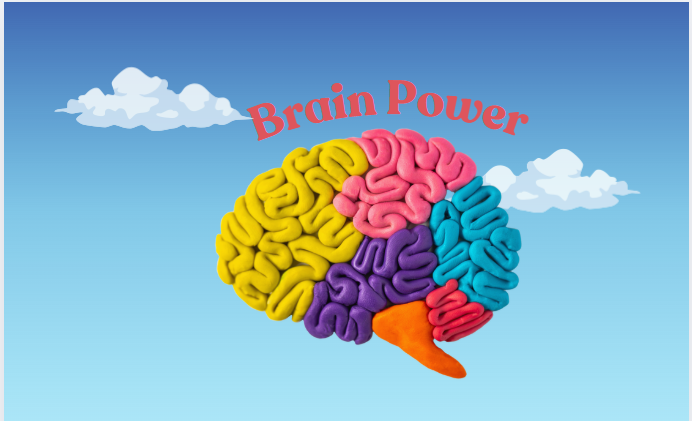Our daily choices and habits play a powerful role in shaping our long-term brain function. Thanks to its ability to adapt and rewire, a quality called neuroplasticity.
The Rewards We Feed the Brain
Just like a child responds to praise and encouragement, our brain thrives on healthy reinforcement. Good rewards — such as the satisfaction of solving a problem, learning something new, or receiving genuine social connection — release dopamine in a measured, beneficial way. This promotes motivation, memory retention, and emotional well-being. Walking in nature, completing a creative task, or having meaningful conversations are forms of intrinsic rewards that build cognitive resilience over time.
In contrast, not all rewards are created equal. The modern world offers a deluge of instant gratifications — likes on social media, sugary snacks, binge-watching — which flood the brain with dopamine. This excessive stimulation, especially in young and developing brains, can blunt our natural reward circuitry, leading to poor attention, addiction-like behavior, and even depression. When rewards are not earned but mindlessly consumed, the brain becomes a passive receiver rather than an active participant.
Different Ages, Different Brain Needs
Caring for the brain means understanding its evolving needs at every stage of life. In childhood (ages 0–12), the brain is highly malleable and primed for growth. During adolescence (13–19), the brain undergoes significant rewiring, especially in areas related to risk and reward. With the prefrontal cortex still developing, teenagers need plenty of sleep, emotional validation, and structured independence.
In adulthood (20–60), the brain faces the challenge of managing stress, decision-making, and constant multitasking. Cortisol, the stress hormone, can impair memory and focus if not regulated. At this stage, the principle of “use it or lose it” applies strongly to maintaining brain health.
In later life (60+), the brain’s plasticity slows but never stops. Memory might falter, but the capacity to learn, adapt, and grow persists. Seniors benefit from intellectual engagement, community involvement, light exercise, and purpose-driven activities.
REWARD YOUR BRAIN WISELY
- Solving a problem
- Learning something new
- social connection
- Walking in nature
- Creative activities
- Physical games
- Repeating Victim mindset
- Mindless gossip
- Social media likes
- Sugary snacks
- Binge-watching TV or videos
Benefits
- Balanced dopamine release
- Increased motivation
- Better memory retention
- Improved emotional well-being
- Long-term cognitive resilience
Risks
- Flooded dopamine levels
- Poor attention and focus
- Addiction-like behavior
- Increased anxiety or depression
- Passive brain engagement
- Meditation — Practices like Vipassana or Transcendental Meditation calm the amygdala, reduce anxiety, and improve grey matter density. Just 10 minutes a day enhances focus and emotional regulation.
- Pranayama (Breath Control) — Yogic breathing techniques lower stress levels, increase oxygenation to the brain, and enhance alpha brain wave activity linked to relaxation and creativity.
- Balancing Exercises — enhance coordination, stability, and core strength, reducing the risk of falls, especially in older adults. They also improve cognitive function through focused, mindful engagement.
- Fasting / Intermittent Fasting — Periodic fasting has been shown to increase Brain-Derived Neurotrophic Factor (BDNF), supporting learning and memory, while also reducing oxidative stress.
- Morning Sunlight Exposure — Light signals the brain to regulate circadian rhythm, boosting serotonin, a precursor to melatonin, supporting better mood and sleep.
- Earthing (Walking Barefoot) — Direct contact with the earth reduces inflammation and stress markers, and recalibrates the body’s internal bioelectrical rhythms, which are closely tied to mental clarity.
- Geometrical Pattern Drawing — Focusing on geometric patterns stimulates spatial reasoning and creative cognition, similar to modern-day mindfulness coloring books used in therapy.
Brain power isn’t about being a genius or a productivity machine. It’s about being clear, centered, resilient, and joyful in thought. When we align ancient practices with scientific understanding, we unlock the potential to nurture our minds holistically. Across ages, we must care for the brain like a sacred garden — with good food, meaningful activity, deep rest, and purposeful rituals.
There is no one-size-fits-all approach, but there is a universal truth: the brain becomes what we feed it. In a world hungry for distraction, the real reward lies in choosing presence, learning, and inner calm — again and again.
When we align ancient practices with scientific understanding, we unlock the potential to nurture our minds holistically.
The writer can be contacted at dew.saba@gmail.com







